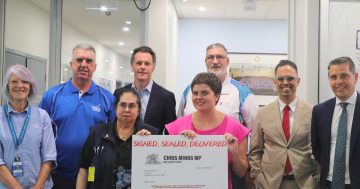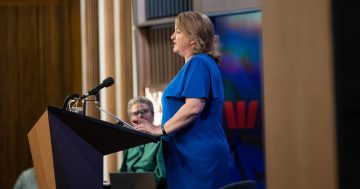Stephanie Palmer-Derrien* says menopause remains a taboo in the office and Aussies are split on dedicated sick leave.
 As businesses improve their parental and miscarriage leave policies, there’s a personal topic that affects half of the population but remains taboo: menopause.
As businesses improve their parental and miscarriage leave policies, there’s a personal topic that affects half of the population but remains taboo: menopause.
A survey of 4,000 Aussies, three-quarters of whom have experienced menopause, highlights the challenges it can pose in the workplace.
But many don’t support additional sick leave for those affected.
Last week global foods giant Kellogg’s announced it will offer UK staff fertility, menopause and miscarriage leave.
Managers at Kellogg’s will also reportedly be trained on how to talk about topics such as menopause and pregnancy loss.
Those making use of paid leave for pregnancy loss will also not need to provide a doctor’s note.
The new policies are intended to create a culture in which people feel “psychologically safe” Kellogg’s European vice president for human resources Sam Thomas-Berry reportedly said.
“Many people experience these issues, and the impact can be both physical and mental, but they aren’t discussed widely in the workplace.”
The news follows several announcements from Aussie companies improving their personal leave policies.
Zip Co has introduced a paid leave policy for employees who suffer a miscarriage or pregnancy loss, and Modibodi offers menstrual, menopause and miscarriage leave.
Linktree, Brosa and 99designs have also all released generous parental leave packages.
While family-centric policies are becoming more common, challenges surrounding menopause are still often overlooked.
Research from healthcare brand Flordis Femular found that 18 per cent of people experiencing menopause have had to adjust their work practices to manage symptoms.
Of those, 57 per cent said they experienced hot flushes, 47 per cent experienced sweating, 48 per cent experienced sleeplessness and 42 per cent experienced mood swings.
About a third (28 per cent) said they had to take additional doctor’s appointments within work hours, and 40 per cent said they needed to take time off.
However while 68 per cent of women believe anyone experiencing menopause should be able to access extra sick leave, only 45 per cent of men agree.
The research also raised concerns about communication in the office.
Some 46 per cent of respondents who have experienced menopause said they were not comfortable talking openly with their manager or colleagues about symptoms.
Of those that had to make adjustments to the way they work, 24 per cent said they felt the need to lie about why.
In a statement, women’s health and reproduction educator Natasha Andreadis noted that there are relatively simple changes workplaces can make to become more ‘menopause-friendly’.
About three-quarters of those who have experienced menopause would welcome flexible hours, for example, and a third would like to see their dress code relaxed.
“Although Australians are divided on the issue of extra support for women going through menopause, it is clear that many women are seeking change and more action needs to be taken to support women through this pivotal time in their lives,” Andreadis said.
*Stephanie Palmer-Derrien is the startups and technology editor at SmartCompany. She can be contacted at [email protected].
This article first appeared at smartcompany.com.au.











